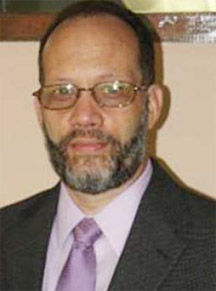Caribbean Community (CARICOM) Secretary-General Irwin LaRocque has sounded a call to action toward achieving the elimination of HIV and AIDS, in the Caribbean and the world.
“World AIDS Day and its focus on “Zero” is an opportunity for all of us – individuals, communities and political leaders, to take action and ensure that we achieve the elimination of HIV and AIDS not only in the Caribbean but around the world,” Ambassador LaRocque said in a statement on the occasion of World Aids Day, 1 December.
He said this year’s commemoration, under the theme Getting to Zero: Zero New HIV Infections; Zero Discrimination; and Zero AIDS Related Deaths,” was a call for all “to move beyond the traditional routine responses that have been employed in the past in fighting HIV.”

This was an opportune time “to use innovative and creative ways in reducing new HIV infections, deaths and discrimination,” he was quoted as saying in a statement issued by the CARICOM Secretariat.
Reflecting on successes that could inspire forward action, Ambassador LaRocque directed attention to regional the reduction of new infections in Mother to Child Transmission (MTCT) of HIV. He lauded the Caribbean for being the first to champion the global initiative to eliminate mother to child transmission, singling out The Bahamas for leading CARICOM Member States with a record of zero transmission in 2010.
However, LaRocque said there were still challenges which must be addressed before CARICOM Member States can achieve other “Zeros.” The first challenge, experienced at both the country and regional levels, and which required shared responsibility, was to ensure that the Region was responding adequately and effectively to country needs.
Information sharing remained a major challenge in the HIV and AIDS response in the Caribbean, he added and countries must recognise that there was value in the collection and sharing of information, as it supported a more improved coordinated effort in the fight against HIV.
Another critical challenge he pointed out was resource mobilization within the context of severe economic hardships experienced by many countries as a result of the global recession.
“As traditional funding streams for HIV dwindle, research grants and other competitive grants become important sources of funding. Additionally, we must pay greater attention to avoid duplication of effort in the regional response,” LaRocque cautioned.
He pointed out that the Pan Caribbean Partnership Against HIV and AIDS (PANCAP) was focusing on these and other challenges in the regional effort to get to “Zero”.
“There is no denying that PANCAP’s programmes have contributed and continue to contribute significantly, to accelerating the HIV and AIDS response agenda throughout the Region and its presence and programming must be sustained,” the CARICOM Secretary-General said.





